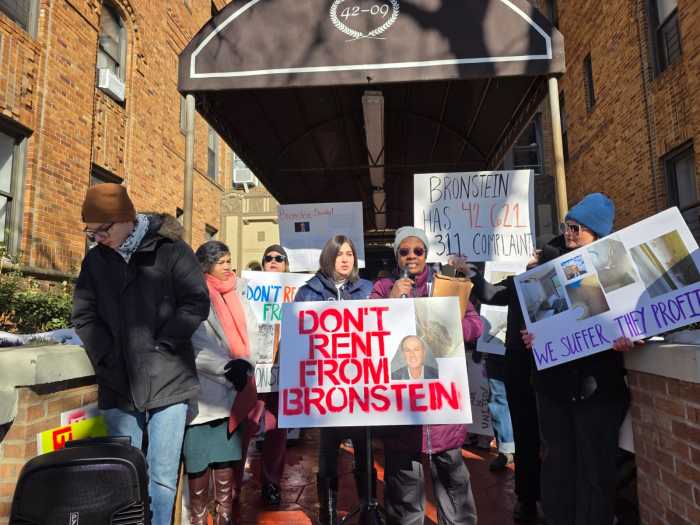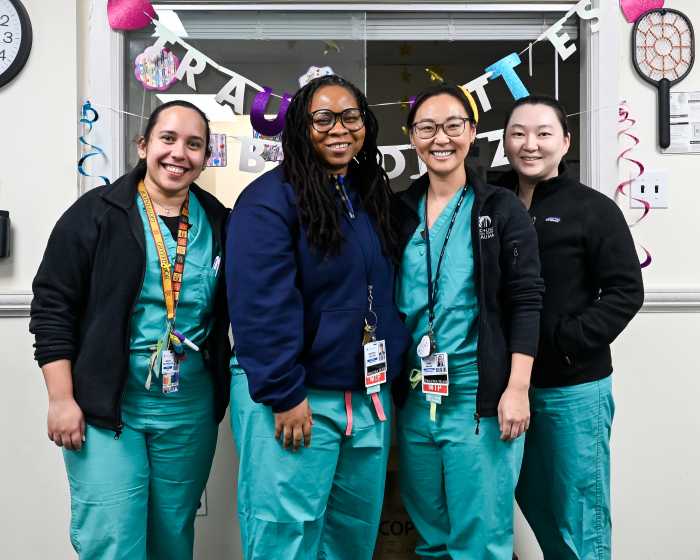Meeks Minority Bank Bill Passes HFS Committee Markup
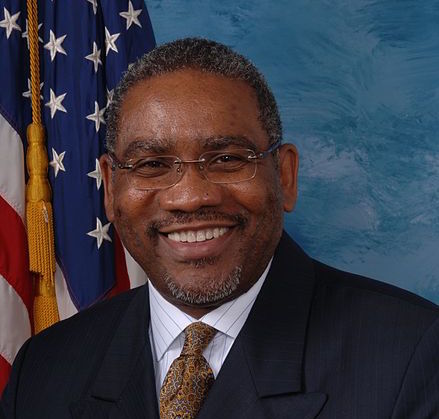
U.S. Rep. Gregory W. Meeks’ (D-Jamaica, Laurelton, Rosedale, Cambria Heights, Saint Albans, Springfield Gardens, The Rockaways, JFK Airport) minority banking bill passed out of the House Financial Services (HFS) Committee with a bipartisan vote of 52-0.
The legislation, the Ensuring Diversity in Community Banking Act of 2019 (H.R. 5322), puts forward regulatory initiatives to preserve and promote minority banks and credit unions. It strengthens programs that provide capital to these crucial institutions and creates an Impact Bank designation for community banks that predominantly serve low-income communities.
“Minority banks and credit unions are disappearing at an alarming rate, with devastating implications for under-banked communities of color across the country. Low-income communities in banking deserts are increasingly reliant on predatory payday loans, or other options that cause them to fall in debt traps. My bill clears hurdles faced by Minority banks and credit unions, creating a new Impact Bank designation for banks that lend predominantly to low-income communities,” said Meeks.
“The bill is an important step in ensuring that banks and credit unions that serve under-banked minority and low-income communities remain key pillars of the American banking ecosystem. I look forward to bringing the bill to the House floor for a vote and having a Senate sponsor introduce it in the other chamber,” he added.
Research confirms that Minority banks and credit unions play an active role in addressing persistent discrimination in banking, as they are far more likely to serve underbanked communities of color and low and moderate-income (LMI) communities than both large banks and non-minority owned community banks.
As a result of the financial crisis of 2008, and the disproportionate impact of the housing crisis and recession on minority communities, the number of MDIs shrank by over 30% over the following decade, falling from a peak of 215 institutions in 2008 to 149 at year-end 2018.
Meng Hails House Passage To Lower Prescription Drugs
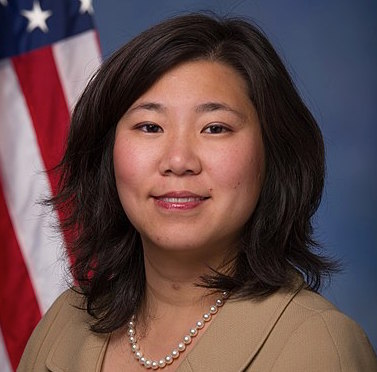
U.S. Rep. Grace Meng (D-Bayside, Flushing, Forest Hills, Fresh Meadows, Glendale, Kew Gardens, Maspeth, Middle Village, Rego Park) yesterday hailed the House of Representatives’ passage of the transformative Elijah E. Cummings Lower Drug Costs Now Act (H.R. 3), a bill that makes major efforts to lower prescription drug prices for Americans.
“Today, House Democrats took a bold step to rein in the skyrocketing costs of prescription drugs with the passage of the Elijah E. Cummings Lower Drug Costs Now Act,” said Meng. “This is just a first step in making medicine affordable, much like the Affordable Care Act was in expanding healthcare coverage to millions of Americans. We pay the highest costs for lifesaving drugs compared to other countries, but do not have better health outcomes. The exorbitant costs have forced many people—particularly seniors and low-income families—in Queens and across the nation to choose between paying their rent to skipping groceries in order to buy their medications. Our nation should be ashamed of this; the situation must change and that is why the House took action today. Now the Senate must act immediately and follow suit to bring relief to millions of Americans.”
Specifically, the legislation would:
- Empower the Secretary of Health and Human Services to negotiate lower drug costs for up to 250 drugs per year that do not have competition in the United States.
- Create a $2,000 out-of-pocket limit on drug spending in Medicare Part D.
- Expand Medicare Part B coverage for dental, vision, and hearing benefits.
- Improve Medicare’s Low-Income Subsidy and Program and Medicare Savings Program to help seniors afford their prescription drugs.
- Reauthorize and expand the Health Profession Opportunity Grant Program, which will help address health worker shortages.
- Double investment in the Maternal, Infant, and Early Childhood Home Visiting program that is proven to reduce maternal mortality and morbidity.
- Invest over $10 billion into biomedical research at the National Institutes of Health.
- Invest an additional $2 billion at the Food and Drug Administration to enhance drug development, review, and safety.
- Invest $10 billion in combatting the national opioid crisis.
- Invest $10 billion in Community Health Centers to improve and expand facilities and serve more people—including veterans, patients with substance use disorder, and Americans living in rural areas.
Specific effects of H.R. 3 would bring enormous health benefits for all New Yorkers, including many in Queens. In Meng’s district, expanding Medicare Part B coverage for dental, vision, and hearing would benefit 127,700 people, 106,800 people, and 120,400 people, respectively.
Empowering the government to negotiate prescription drug costs would have enormous benefits for Americans. For example, over 1.6 million New Yorkers live with diabetes and pay from $1,200 to $20,000 annually. Under H.R. 3, New Yorkers could pay as little as $400 per year for some commonly used insulin.
Van Bramer Pushes To Save Small Biz + Commercial Rent Control
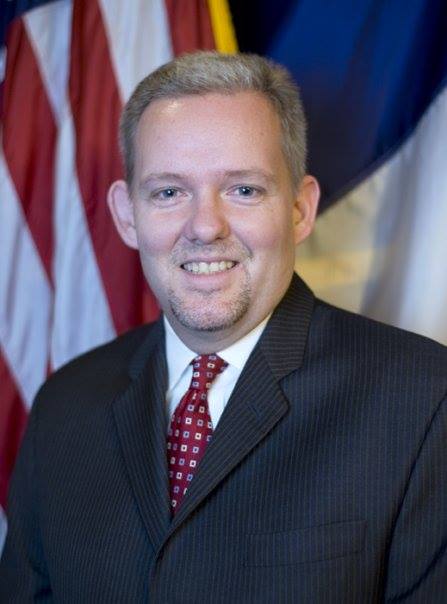
City Council Member Jimmy Van Bramer (D-Astoria, Long Island City, Sunnyside, Woodside) and local residents from Queens today will push to protect and promote small businesses through the passage of the City Council’s commercial rent control bill (Int. 1796-2019).
Van Bramer is a sponsor on Council Member Stephen Levin’s (D-Brooklyn) bill to create a Commercial Rent Guidelines Board that would regulate commercial rents just like the Rent Guidelines Board does for apartment rents.
Under the measure, any retail spaces at or less than 10,000 square feet, manufacturing spaces 25,000 square feet, and professional services or other office spaces of 10,000 square feet would be under its purview. The Board will determine rent increases by factoring in commercial real estate taxes, sewer and water rates, and gross operating and maintenance costs.
According to the city comptroller, vacant commercial space has doubled over a decade, up to 11.8 million square feet in 2017.
Van Bramer will bring light to this bill at 11 a.m., today, Dec. 13 at Former Dave’s Bagels, 43-20 Queens Blvd, in Sunnyside.
Koo, Dromm To Visit South Asian Food Pantry
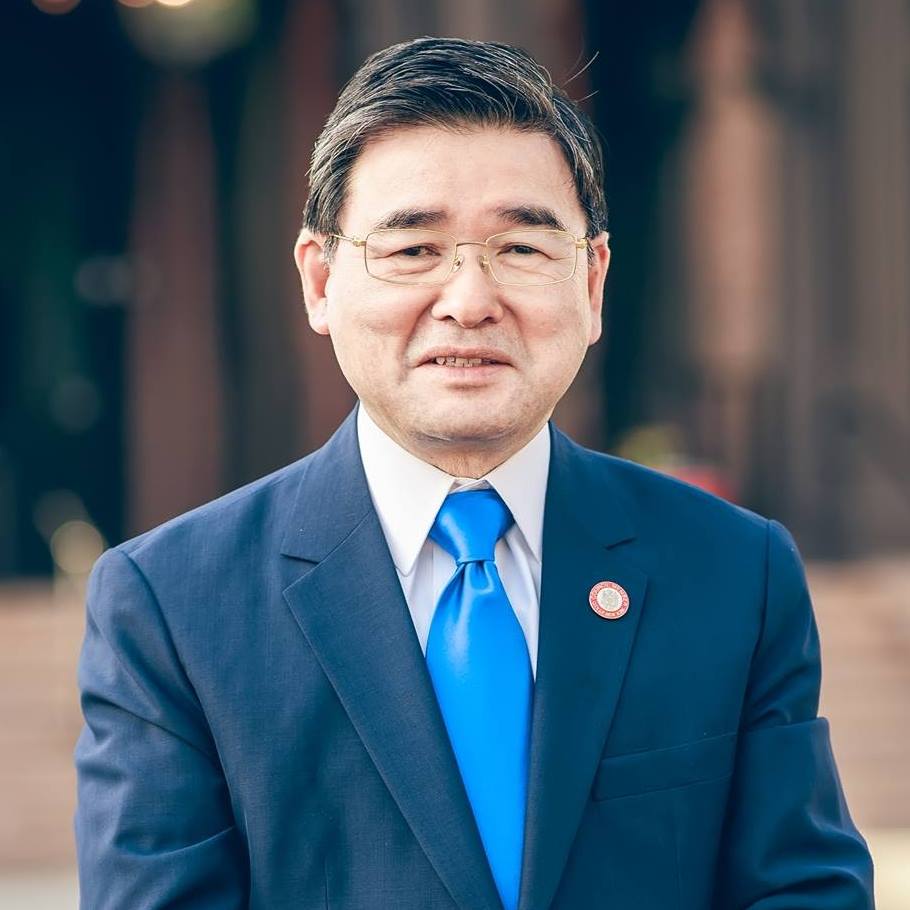
City Council Members Peter Koo (D-Bayside, College Point, Flushing, Flushing Meadows Corona Park, Fresh Meadows, Whitestone and Daniel Dromm (D-East Elmhurst, Elmhurst, Jackson Heights) today will be visiting South Asian Council for Social Services (SACSS)’ South Asian Food Pantry.
Founded in 2016, SACSS’ food pantry is the first of its kind in the tri-state area serving South Asian Food. The pantry serves healthy vegetarian food which suits the palate as well as religious beliefs of our clients – particularly Hindus, Jains and Muslim clients.
Open from 10:30 a.m. – 2 p.m., every Friday, the pantry is also client choice this gives clients the freedom to choose their own food which they can use to make meals that match their personal dietary preferences.
This program serves low-income and underserved South Asian and other immigrants in NYC – with particular emphasis on the borough of Queens. Many pantry recipients are immigrants isolated in their homes or communities, have low education levels, and high unemployment rates – all of which intensifies their poverty and risk for poor nutrition. Today, the Food Pantry serves over 5,970 individuals annually.
Koo and Dromm will make their visit between 11 a.m. – 12 noon today, Dec. 13 at the SACSS, 143-06 45th Avenue in Flushing,
Kim To Give Lecture At University Of Tokyo

Assemblyman Ron Kim (D-Whitestone, Flushing, College Point, Murray Hill) will lead a public seminar and discussion at Tokyo University on how to build an inclusive economy for the 21st century.
Along with 40-50 graduate-level students and faculty members, Assemblyman Kim will discuss the Inclusive Value Ledger and how we can create a caring society by redesigning money, ending corporate welfare, and recirculating wealth within local economies.
Kim will deliver his lecture at 4:30 p.m., Tokyo time, today Dec. 13 at the University of Tokyo, 7 Chome-3-1 Hongo Bunkyo City, Tokyo, Japan.






